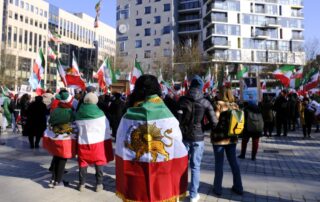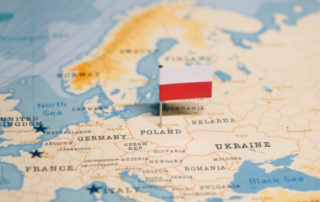
The victory of Giorgia Meloni's right-wing coalition in Italy's September 2022 elections brought a Eurosceptic nationalist party to power that has roots in the Italy of Benito Mussolini. Meloni’s Brothers of Italy party has its origins in fascist Italy. Nonetheless, Meloni came to power as the first woman to hold the position of Prime Minister in the country. Meloni’s rise ignited fears in Europe’s mainstream about Rome’s commitment to EU integration backing of Ukraine’s war against Russia. However, upon taking office as Prime Minister in October 2022, Meloni took a pragmatic approach to mollify these concerns. She affirmed Italy's place in the EU and NATO and pledged continued support for Ukraine against Russian aggression. Rather than abandon Europe, Meloni’s government positioned itself as defensive of family values and committed to Italian economic interests rather than revisionist foreign policy.
Italian Economic Policy
Italy relies heavily on EU pandemic recovery funds and cannot afford to alienate Brussels. The country faces high inflation, debt, and energy costs, making financial stability paramount to Rome’s domestic interests. Adopting radical anti-EU policies could jeopardize Italian access to European markets, capital, and joint programs. Indeed, a complete British-styled “Italexit” from Europe would jeopardize Italy’s ability to engage in cross-border investment across the bloc and from foreign subsidiaries with a presence in the region.
As Europe grapples with efforts to wean itself from Russian oil and gas while seeking alternatives to hydrocarbons, Italy is making energy policy a pillar of its foreign policy. Meloni is adopting some continuity with its predecessor Mario Draghi in seeking new gas suppliers like Algeria and Azerbaijan. Her administration also backs projects for more LNG import capacity. However, Meloni demands a bolder EU response to the continent’s energy woes. Meloni has also sought joint EU gas purchasing and price caps to reduce costs.
Meloni’s energy policy is leveraging Italy’s geography. Historically, Italy economically avoided the worst of the Dark Ages due to its ongoing grade with the Eastern Mediterranean and access to international trade with East Asian spice routes through the Silk Road and Egypt. What worked for spices can work for energy in the 21st century, and perhaps all the more so with Europe severed from Russian supplies for the foreseeable future. Domestically, the Meloni government is pursuing a pragmatic approach to boosting domestic supplies within Italy itself. Beyond natural gas, Meloni aims to boost Italy’s nuclear power production by reversing the country’s 1987 ban on nuclear energy. She wants small modular nuclear reactors. Meloni’s shift towards nuclear power is following the lead of Italy’s French northern neighbor and may fundamentally alter the energy politics within Europe. Should Germany remain nuclear-averse, Italy and France may become suppliers and conduits of energy from domestic production and hydrocarbons from North Africa into Europe’s more industrialized north.
US companies investing in North Africa or Europe can consider Italy a potential hub via foreign direct investment or subsidiary establishment.
Italy does have risks in the form of corruption, political instability in parliament that can lead to abrupt shifts and an organized crime risk in the country’s south. Conducting enhanced due diligence investigations and intelligence risk assessments can mitigate these business environment risks.



